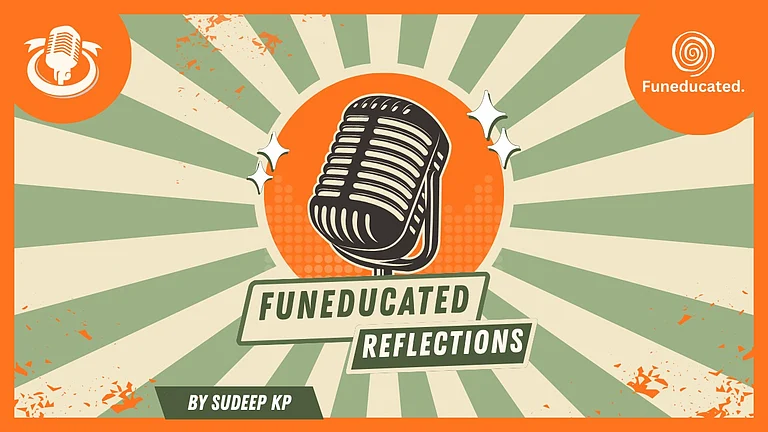Sukriti Gupta graduated last year in media studies and is cinematographer for the Indian version of Twittamentary, a film on how Twitter is transforming people’s lives. Thanks to the smartphones and innumerable apps, she is herself online 24x7. No wonder she tells you: “LOL (laugh out loud), ROFL (rolling on the floor laughing) are passe, we use PMSL (pissed myself laughing).” We are talking about internet slang, the dominant mode of online expression increasingly commonplace in the real world.
Film writer Ishita Moitra says it was inevitable. “I check Twitter like I am a doctor on call and I can’t have a nice-looking cocktail before Instagramming it and posting it on Facebook (tagged with location of course!),” says the self-confessed social network addict. “No wonder, if we spend half our lives online either Whatsapping, BBMing or iMessaging each other, or hashtagging on Twitter, it was only a matter of time before this lingo percolated into our offline lives as well,” she says. These expressions could be acronyms, symbols, emoticons or abbreviations, but have one thing in common—they are all vehicles of snappy self-expression. “It emerges from the SMS, Twitter psyche. Of compressing everything in 140 characters,” says social media consultant Avinash Kalla. “It’s a case of abbreviation by necessity,” says adman Santosh Desai. It’s almost like a symbolic code. So “today I learnt” becomes TIL, FTW is “for the win” and TTYL is “talk to you later”. “There are less of complete sentences, more of emotions encased between asterisk (*) or preceded by a hashtag (#),” says Gupta. So *facepalm* or #facepalm is not just a gesture that Manoj Kumar made famous but an online reaction to something stupid.
The idea, obviously, is to ease communication. “It simplifies things,” says BBC producer Vaibhav Dewan. And the shared usage of a lingo creates a sense of bonding and belonging. So if you are cool, you won’t use “for sure” but “fo shizzle” instead. Ironically, while it’s simpler for some, things get incomprehensible to those outside this “in” group. To the extent that now one needs style guides and Tweet dictionaries to make sense of a lot of online confabulation. “As we have style sheets for media houses, we need them for social media,” says Kalla.
Naturally, such attenuations are transforming English. Regular words are wholly altered, attributed new meanings, turned more versatile. #TIL that “epic” is no longer about a narrative poem, but implies “extremely awesome”. “Pawned” is not something given as a security or guarantee against a loan but signifies defeating, belittling or dominating someone. “Word” is used to express agreement or approval.
Under this assault, grammar is vanishing, spellings are forgotten, vocabulary is shrinking. “I have to spell check words like receive, whether it is ei or ie,” says Dewan. “There is an inability to frame full sentences, proper English has taken a backseat,” says Sukriti. Desai doesn’t see it as a bad thing. “Every new usage creates new conventions and modes of expression,” he says. For him what’s more significant is whether our thought processes, our patience, are getting compressed. “This kind of distillation and condensation may also lead to an abruptness and an inability to deal with complexities and layers,” he says.
“Language constantly evolves...it becomes more of a tool of convenience. And this shows up in our films too,” says Ishita. A clear sign of increasing currency is when it enters popular culture. The Y Film teeny-bopper release Mere Dad Ki Maruti is crammed with internet lingo. The heroine Jasleen, aka Jazzline, is shown having a break-up with her boyfriend and storming out, saying, “hashtag k thanks bye”. It refers to one of the most popular hashtags on Twitter—#Kthxbai. At one point hero Sameer uses Twitter slang to describe a girl: “Aise epic legs toh display pic pe lagaane chahiye”.
Mere dad Ki Maruti may be a precursor to an online slang invasion of Bollywood. And the ramparts of literature can be breached next. There are already haiku stories on Twitter. At the Mumbai litfest there was a competition for ultrashort stories in 140 characters. A novel, or a set of stories written predominantly in internet slang is but a few steps away.






















